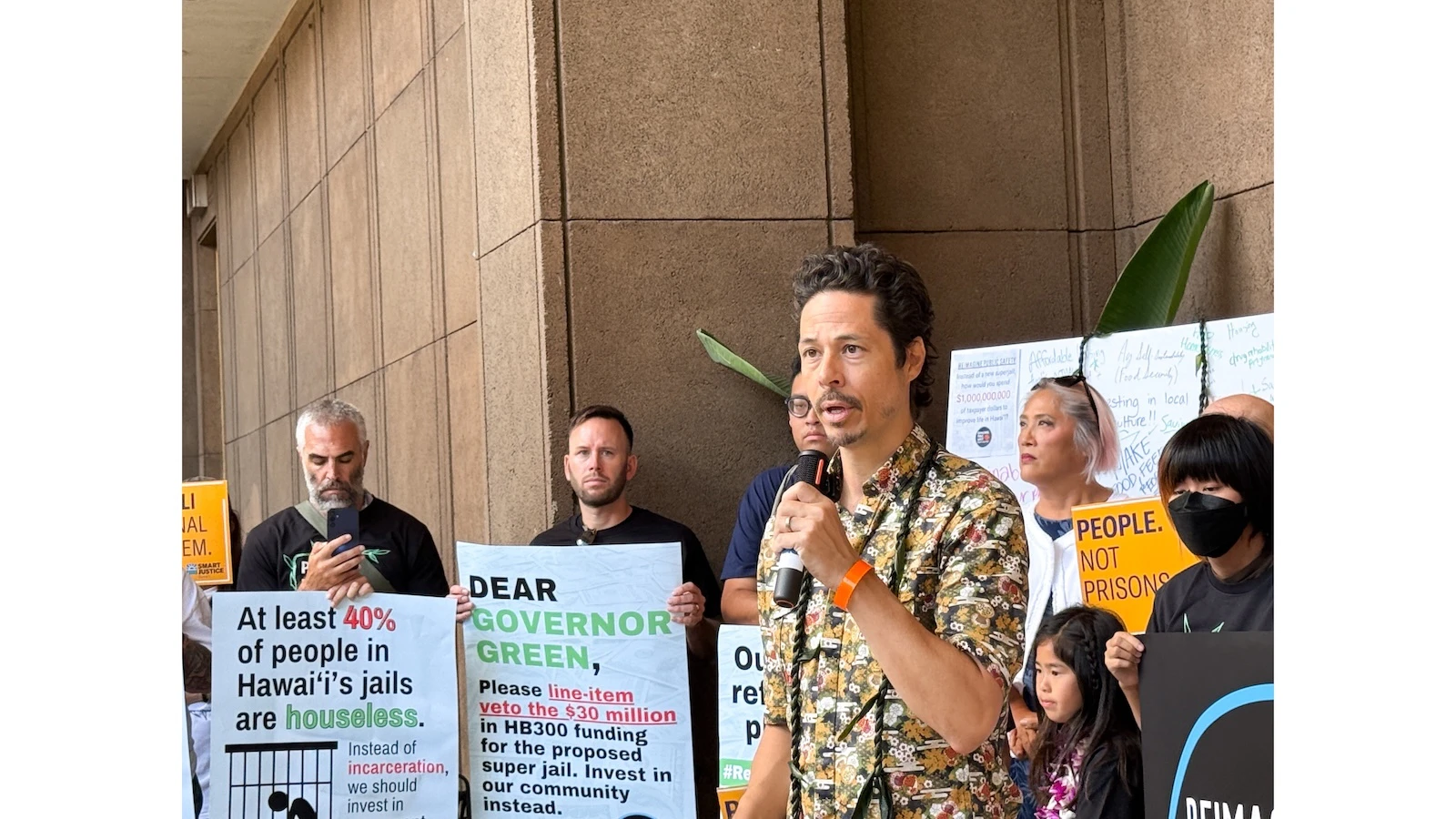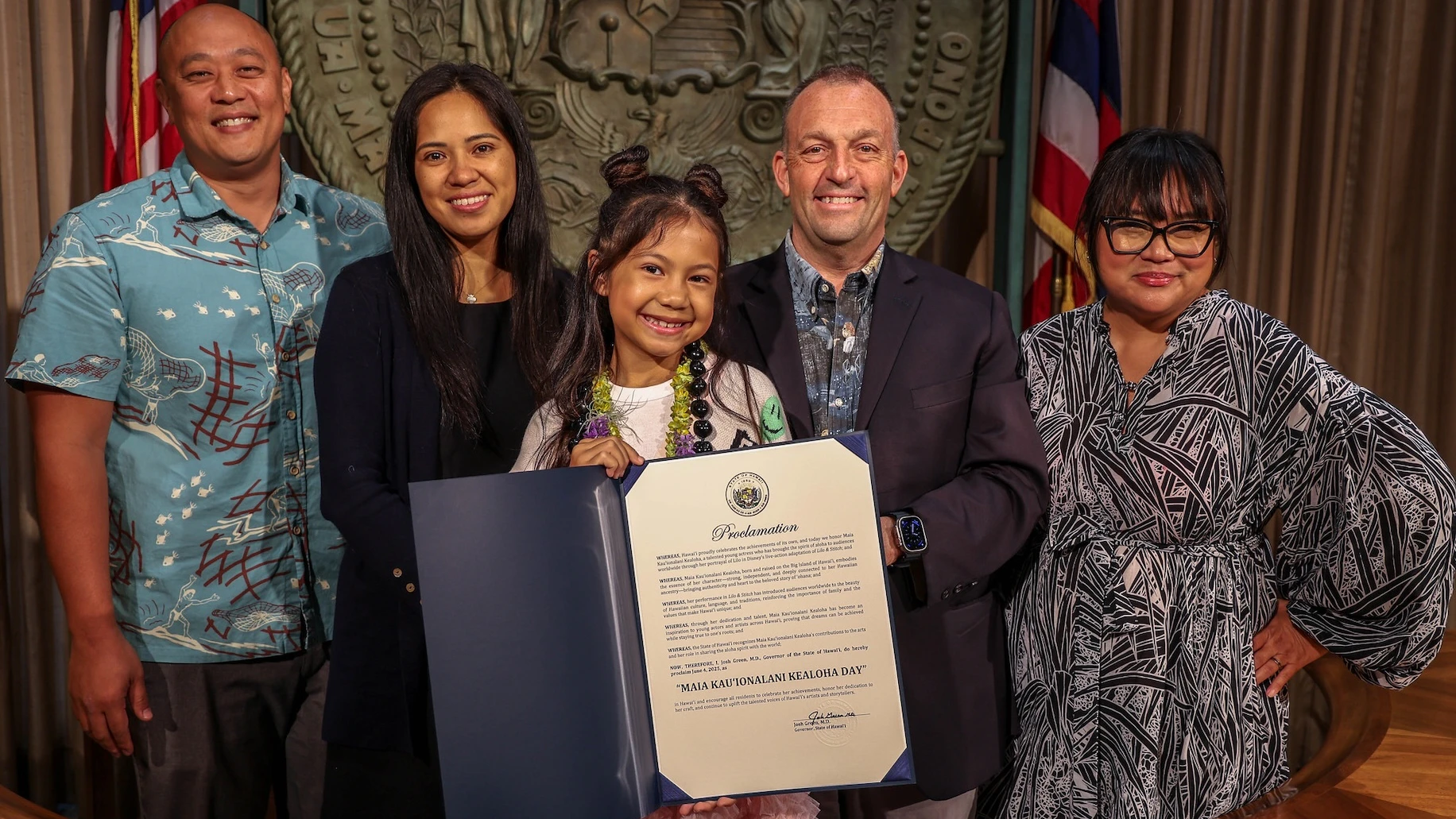Prosecutors hope a new law in Hawai‘i will close a loophole allowing extreme child abusers to avoid severe criminal charges.
Gov. Josh Green signed into law Senate Bill 281 Wednesday, which establishes “torture” as a criminal offense in the state.
The bill is an effort by the state Department of the Prosecuting Attorney to close certain blind spots in state statutes that made it difficult to prosecute perpetrators of particularly heinous crimes against children.
“We can prosecute murders,” said deputy prosecuting attorney Erika Candelario to Aloha State Daily. “But there are cases where kids are getting caught in this gap in the law.”
Candelario — team captain of the Felony Domestic Violence and Child Abuse Unit at the Department of the Prosecuting Attorney — said that gap became particularly apparent following several high-profile incidents over the past year “mostly involving the murder of young girls.” While the prosecutor’s office cannot comment on ongoing cases, she said the dynamics of child abuse sat poorly within the state’s prior definitions of injury.
For example, Candelario said, in instances where a child was deliberately starved by their caregiver, the charges available to prosecutors were minor and didn’t reflect the gravity of the crime.
Furthermore, she said, the impacts of starvation can dampen the victim’s sensitivity to pain. Because “causing pain” is itself a component in the state’s definition of assault charges, the circumstances of torture again could complicate the law’s reaction to it.
The new law places several different acts under the category of “torture,” such as “causing serious bodily injury to another person within the actor’s custody or physical control.” Torture is now considered a Class A felony, carrying a maximum possible sentence of 20 years in prison.
The law places considerable emphasis on offenses against minors — or other vulnerable people — strangling, branding, depriving them of food or water, forcing them to remain in unclean areas such as where human waste is kept, exposing them to extreme temperatures without adequate clothing, and more. Committing any of those acts three times or more within two years constitutes torture.
Candelario said the relationship between torturer and victim was a factor in devising the bill. Most common in torture cases are scenarios where the perpetrator is legally responsible for caring for the victim, so greater focus was given to those cases within the law.
Unfortunately, the most recent highly publicized child torture cases in the state are also murder cases. Two Kapolei women, Janae Perez and Ashleigh Utley, were charged in March with second-degree murder, first degree assault, kidnapping and more after the 2024 death of Perez’s 3-year-old daughter Sarai Perez-Rivera.
After police found Perez-Rivera unresponsive, bruised and extremely malnourished at Perez’s home last June, officers reportedly found a string of text messages between Perez and Utley describing how they would punish Perez and her siblings for various infractions, including by withholding food and water, by denying access to the bathroom, and more.
And in 2022, the parents and grandmother of 10-year-old Geanna Bradley pulled her from school at ‘Iliahi Elementary School ostensibly to homeschool her, but instead reportedly confined her at home for months, withholding food, water and bathroom access, binding her with duct tape and beating her, until she was found dead in January.
Bradley’s parents, Thomas Blas and Brandy Blas, and grandmother Debra Geron, were charged with second degree murder, kidnapping, unlawful imprisonment, endangering the welfare of a minor, and more.
“Across the state, prosecutors have seen heinous crimes involving children who suffered acts of torture committed against them by their parents or those who have a duty to protect them,” Prosecuting Attorney Steve Alm said in a statement Wednesday. “The laws that we had to fight these crimes did not adequately address the criminal conduct exhibited in these cases … Our state needed this law to protect those who are vulnerable and unable to protect themselves.”




